-
 Bitcoin
Bitcoin $116,413.6316
4.86% -
 Ethereum
Ethereum $2,962.3587
7.88% -
 Tether USDt
Tether USDt $1.0001
-0.03% -
 XRP
XRP $2.5463
5.77% -
 BNB
BNB $683.8102
2.44% -
 Solana
Solana $162.9791
3.86% -
 USDC
USDC $0.9997
-0.03% -
 Dogecoin
Dogecoin $0.1914
5.76% -
 TRON
TRON $0.2924
0.89% -
 Cardano
Cardano $0.6703
7.88% -
 Hyperliquid
Hyperliquid $43.7028
7.30% -
 Sui
Sui $3.4587
13.54% -
 Bitcoin Cash
Bitcoin Cash $518.1126
1.86% -
 Chainlink
Chainlink $15.0839
5.67% -
 Stellar
Stellar $0.3042
5.75% -
 Avalanche
Avalanche $20.4077
4.97% -
 UNUS SED LEO
UNUS SED LEO $9.0358
0.51% -
 Hedera
Hedera $0.1872
9.88% -
 Shiba Inu
Shiba Inu $0.0...01313
5.47% -
 Toncoin
Toncoin $2.9247
3.13% -
 Litecoin
Litecoin $94.4364
4.20% -
 Polkadot
Polkadot $3.8239
5.24% -
 Monero
Monero $327.9946
0.97% -
 Dai
Dai $0.9998
-0.03% -
 Ethena USDe
Ethena USDe $1.0005
-0.06% -
 Uniswap
Uniswap $8.4634
1.54% -
 Bitget Token
Bitget Token $4.5155
2.83% -
 Pepe
Pepe $0.0...01210
8.42% -
 Aave
Aave $311.6595
3.63% -
 Pi
Pi $0.5012
6.68%
How do smart contracts enable tokenization of real-world assets?
Tokenization uses blockchain and smart contracts to convert real-world assets like real estate or art into digital tokens, enabling fractional ownership, automated transfers, and increased liquidity.
Jul 10, 2025 at 10:07 pm
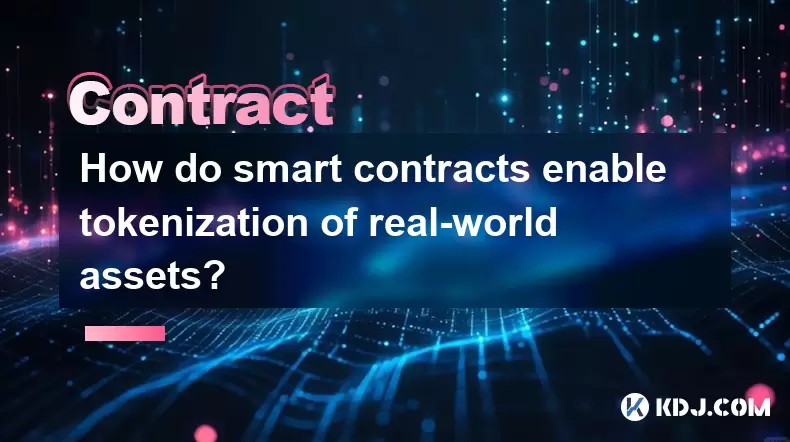
Understanding the Concept of Tokenization
Tokenization refers to the process of converting real-world assets into digital tokens on a blockchain. These assets can include physical properties like real estate, commodities, or even intangible assets such as intellectual property and shares in a company. The core idea behind tokenization is to represent ownership or value digitally, making it easier to trade, manage, and fractionalize assets that were traditionally difficult to divide or transfer.
Blockchain technology provides the infrastructure necessary for this transformation, and smart contracts play a pivotal role in automating and enforcing the rules associated with these digital representations. By leveraging smart contracts, tokenization becomes more secure, transparent, and efficient compared to traditional systems.
The Role of Smart Contracts in Asset Tokenization
Smart contracts are self-executing agreements with the terms directly written into lines of code. They run on blockchain networks and automatically execute actions when predefined conditions are met. In the context of asset tokenization, smart contracts serve as the backbone for creating, managing, and transferring digital tokens representing real-world assets.
- Issuance of Tokens: Smart contracts define how many tokens will be created and under what conditions they are issued.
- Ownership Transfer: When a buyer purchases a token, the smart contract ensures the transfer of ownership occurs only after payment verification.
- Compliance Enforcement: Regulatory requirements such as KYC (Know Your Customer) and AML (Anti-Money Laundering) checks can be embedded into the contract logic.
These programmable rules eliminate the need for intermediaries, reduce the risk of fraud, and ensure that all transactions adhere to agreed-upon protocols.
Creating Digital Representations of Assets
To tokenize a real-world asset using smart contracts, several steps must be followed:
- Asset Evaluation and Verification: Before tokenization, the asset must be evaluated by experts and verified for authenticity and legal ownership.
- Choosing a Blockchain Platform: Developers select a suitable blockchain—such as Ethereum, Binance Smart Chain, or Polkadon—that supports smart contracts and has a robust ecosystem.
- Designing the Token Standard: Depending on the asset type, developers choose appropriate token standards like ERC-20 for fungible tokens or ERC-721/ERC-1155 for non-fungible or semi-fungible tokens.
- Writing and Deploying the Smart Contract: The contract defines token behavior, including minting, burning, and transferability. It’s then deployed onto the chosen blockchain.
- Linking the Token to the Physical Asset: Legal documentation and oracles may be used to ensure the digital token remains tied to the underlying asset's value and ownership.
This structured approach ensures that each token accurately represents the asset it mirrors in the physical world.
Facilitating Fractional Ownership Through Tokenization
One of the most significant advantages of using smart contracts in tokenization is enabling fractional ownership of high-value assets. Traditionally, investing in real estate or fine art required substantial capital and was limited to accredited investors. However, through tokenization:
- Assets can be divided into smaller units, allowing multiple investors to own parts of an asset.
- Smart contracts manage the distribution of profits, such as rental income from real estate or dividends from equity-backed tokens.
- Liquidity increases because these tokens can be traded on decentralized exchanges without needing centralized clearinghouses.
This democratizes access to investments previously out of reach for retail investors while maintaining transparency and security through immutable blockchain records.
Use Cases and Examples of Tokenized Real-World Assets
Several industries have already adopted or are exploring the use of smart contracts for asset tokenization:
- Real Estate: Platforms like Propy and Harbor allow real estate properties to be tokenized, enabling faster and cheaper transactions.
- Precious Metals: Companies offer gold-backed tokens where each token represents a specific weight of gold stored securely.
- Art and Collectibles: NFTs (Non-Fungible Tokens) have enabled the tokenization of artwork, music, and collectibles, allowing artists to monetize their work directly.
- Equity and Bonds: Startups and governments have begun issuing tokenized securities, streamlining fundraising and compliance processes.
Each of these applications relies heavily on smart contracts to enforce rules, automate transfers, and maintain accurate records across a distributed ledger.
Frequently Asked Questions (FAQ)
Q: Can any real-world asset be tokenized using smart contracts?
A: While many tangible and intangible assets can be tokenized, the feasibility depends on legal frameworks, market demand, and technological infrastructure. Assets with clear ownership structures and regulatory support are more likely to be successfully tokenized.
Q: Are tokenized assets regulated?
A: Yes, depending on the jurisdiction, tokenized assets may fall under existing financial regulations. Compliance often involves integrating KYC/AML procedures directly into smart contracts or relying on trusted custodians and legal entities.
Q: What happens if the smart contract contains a bug or vulnerability?
A: Bugs in smart contracts can lead to exploits and loss of funds. That’s why thorough auditing, testing, and deploying upgradeable contract patterns are essential before launching tokenized assets on a live blockchain network.
Q: How do investors redeem tokenized assets for their real-world counterparts?
A: Redemption typically requires going through a trusted intermediary or platform that facilitates the exchange. Smart contracts can trigger redemption events based on specific conditions, but physical asset transfer usually involves off-chain legal enforcement.
Disclaimer:info@kdj.com
The information provided is not trading advice. kdj.com does not assume any responsibility for any investments made based on the information provided in this article. Cryptocurrencies are highly volatile and it is highly recommended that you invest with caution after thorough research!
If you believe that the content used on this website infringes your copyright, please contact us immediately (info@kdj.com) and we will delete it promptly.
- Coinbase & Perplexity: AI-Powered Crypto Insights with Live Data
- 2025-07-11 04:50:13
- Pi Network's Bullish Signals: MACD Crossover and Balance of Power Point to Potential Reversal
- 2025-07-11 05:30:13
- Coinbase, Perplexity AI, and Crypto Prices: Navigating the AI-Crypto Convergence
- 2025-07-11 04:50:13
- Dogecoin's Wild Ride: From Meme to Mainstream… Or Not?
- 2025-07-11 05:35:12
- XRP, Axelar, Interoperability: A New Era for Cross-Chain DeFi
- 2025-07-11 02:30:12
- NEAR Protocol Price Analysis: Navigating July 2025's Trends
- 2025-07-11 03:30:13
Related knowledge
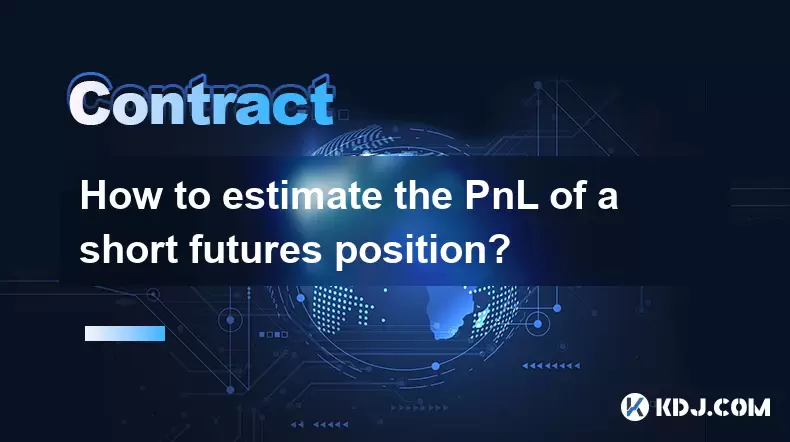
How to estimate the PnL of a short futures position?
Jul 10,2025 at 05:00pm
Understanding the Basics of Futures Trading and PnLIn futures trading, a trader enters into a contract to buy or sell an asset at a predetermined pric...
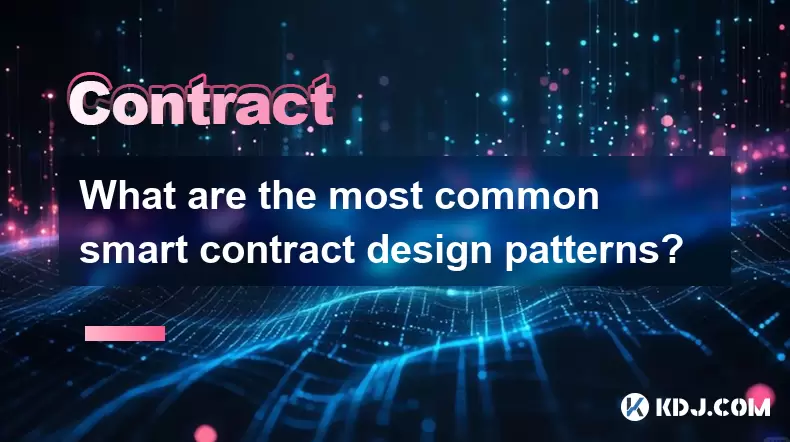
What are the most common smart contract design patterns?
Jul 10,2025 at 09:29pm
Introduction to Smart Contract Design PatternsSmart contract design patterns are standardized solutions to recurring problems encountered during the d...
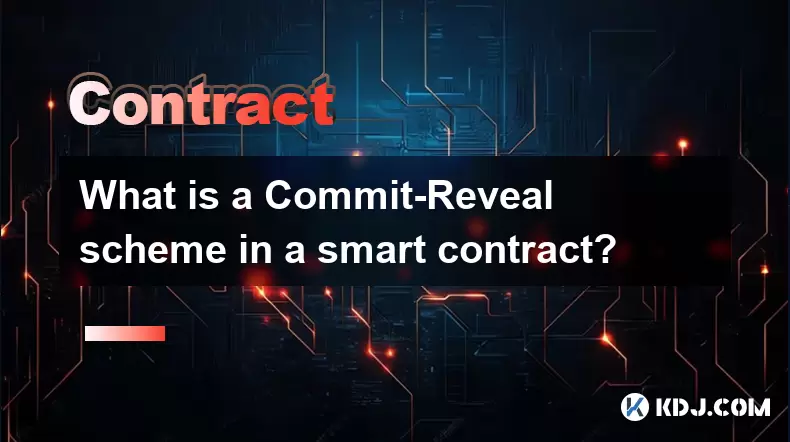
What is a Commit-Reveal scheme in a smart contract?
Jul 10,2025 at 05:22pm
Understanding the Concept of a Commit-Reveal SchemeIn the realm of blockchain and smart contracts, privacy and fairness are often critical concerns, e...
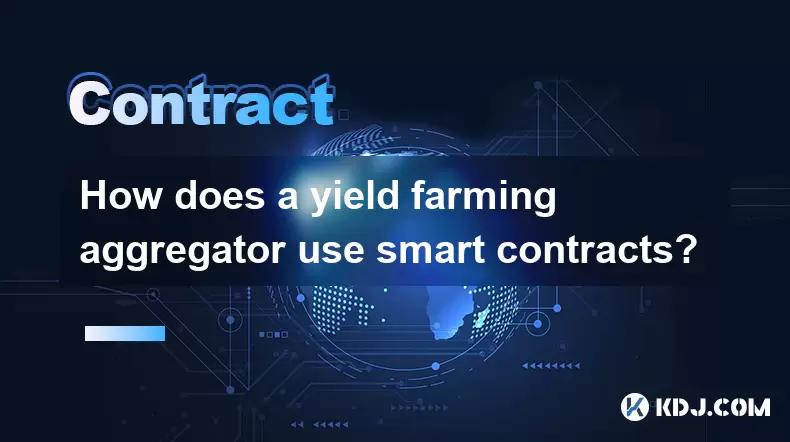
How does a yield farming aggregator use smart contracts?
Jul 11,2025 at 02:49am
Understanding the Role of Smart Contracts in Yield Farming AggregatorsA yield farming aggregator leverages smart contracts to automate and optimize th...
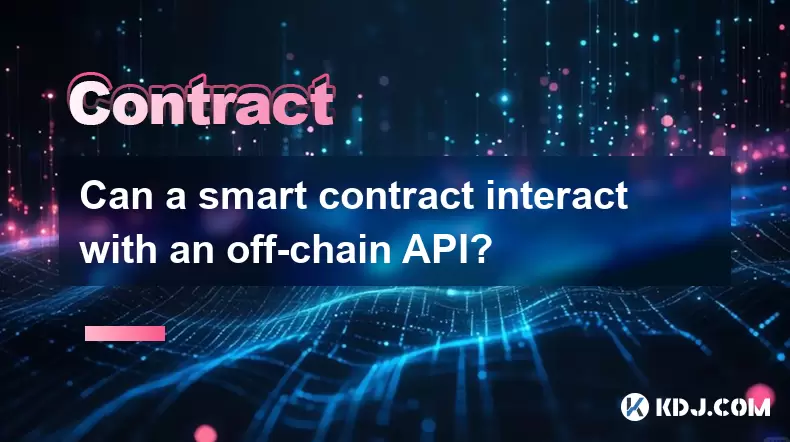
Can a smart contract interact with an off-chain API?
Jul 10,2025 at 09:42pm
What is a Smart Contract?A smart contract is a self-executing contract with the terms of the agreement directly written into lines of code. These cont...
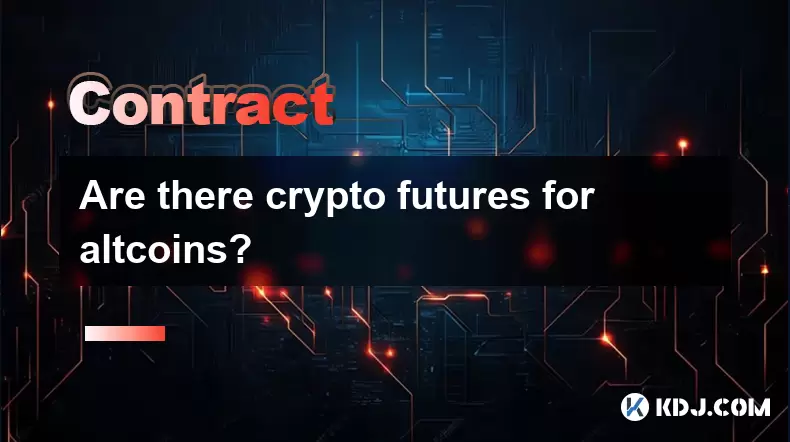
Are there crypto futures for altcoins?
Jul 10,2025 at 11:14pm
What Is a Crypto Faucet and How Does It Work?A crypto faucet is an online platform or application that rewards users with small amounts of cryptocurre...

How to estimate the PnL of a short futures position?
Jul 10,2025 at 05:00pm
Understanding the Basics of Futures Trading and PnLIn futures trading, a trader enters into a contract to buy or sell an asset at a predetermined pric...

What are the most common smart contract design patterns?
Jul 10,2025 at 09:29pm
Introduction to Smart Contract Design PatternsSmart contract design patterns are standardized solutions to recurring problems encountered during the d...

What is a Commit-Reveal scheme in a smart contract?
Jul 10,2025 at 05:22pm
Understanding the Concept of a Commit-Reveal SchemeIn the realm of blockchain and smart contracts, privacy and fairness are often critical concerns, e...

How does a yield farming aggregator use smart contracts?
Jul 11,2025 at 02:49am
Understanding the Role of Smart Contracts in Yield Farming AggregatorsA yield farming aggregator leverages smart contracts to automate and optimize th...

Can a smart contract interact with an off-chain API?
Jul 10,2025 at 09:42pm
What is a Smart Contract?A smart contract is a self-executing contract with the terms of the agreement directly written into lines of code. These cont...

Are there crypto futures for altcoins?
Jul 10,2025 at 11:14pm
What Is a Crypto Faucet and How Does It Work?A crypto faucet is an online platform or application that rewards users with small amounts of cryptocurre...
See all articles





















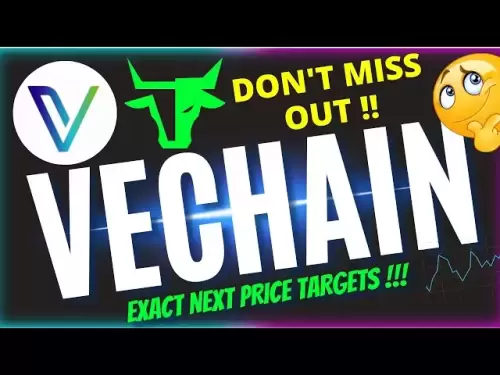

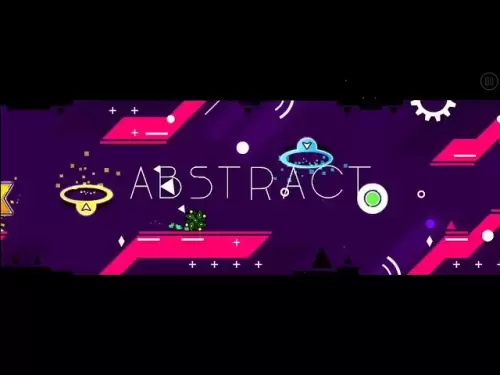
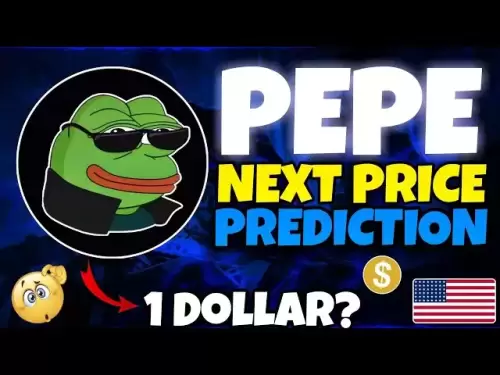
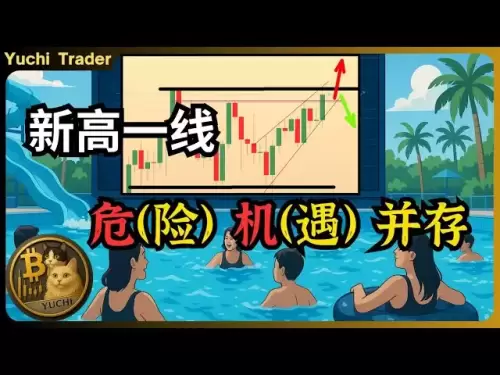
![Bitcoin is about to plummet and get 9-7W long-term short orders [Chainblade’s latest market BTC technical analysis] July 10, 2025 Bitcoin is about to plummet and get 9-7W long-term short orders [Chainblade’s latest market BTC technical analysis] July 10, 2025](/uploads/2025/07/10/cryptocurrencies-news/videos/bitcoin-plummet-w-term-short-chainblade-market-btc-technical-analysis-july/686f8f4c58e52_image_120_90.webp)






























































